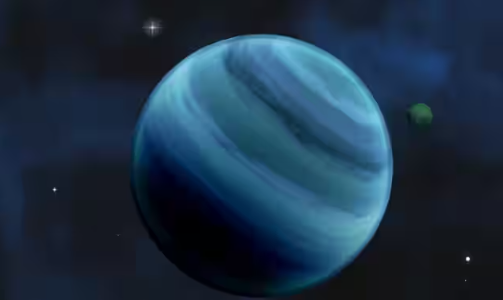
Discovered in the United States by scientists, this Earth-sized celestial body stands out as the nearest to our Solar System. Named LTT 1445 Ac, it boasts a mass approximately 1.37 times that of Earth and a radius around 1.07 times that of our home planet.
READ: Unleash the Ultimate Pokemon GO Strategy: Conquer Cobalion with These Unbeatable Counters!
Despite being too hot to support life, the similarities between LTT 1445 Ac and Earth make it a valuable subject for studying planetary evolution. Investigating what distinguishes one Earth-like world from another is a key focus for researchers.
Meet LTT 1445
Utilizing data gathered in 2021 by the TESS exoplanet-hunting telescope, scientists initially pinpointed Meet LTT 1445. However, observational challenges led to uncertainties about its properties.
This exoplanet resides in a distinct system, orbiting one of three stars gravitationally bound in a trinary system. The study of exoplanets often involves analyzing changes in the light of the host star. Yet, in systems with multiple stars, the gravitational influence of stellar companions affects the observed light of other stars.
To comprehend the properties of an exoplanet, scientists rely on two types of measurements. First, transit data reveals tiny dips in starlight when an orbiting exoplanet passes between the star and Earth. Second, radial velocity data gauges the gravitational tugs of an exoplanet on the star by recording subtle wobbles in the starlight’s wavelength.
Transit data helps determine an exoplanet’s radius by calculating the amount of starlight dimming during a transit. Radial velocity data provides insights into the exoplanet’s mass. Combining mass and radius yields the exoplanet’s density, allowing scientists to infer its composition.
Low density suggests a lack of atmosphere, akin to a gas giant, while higher density indicates a rocky composition similar to Earth, Venus, Mars, or Mercury.




